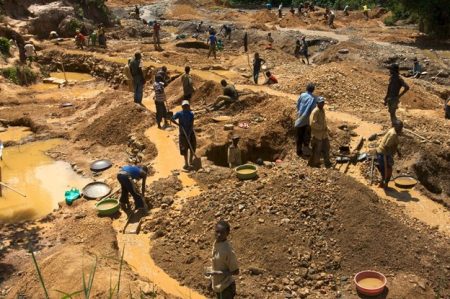
Mkpoikana Udoma
Port Harcourt — The federal government has set an ambitious target of achieving 54% Liquified Petroleum Gas, LPG, usage and 20% electric stove usage by 2030, in its National Clean Cooking Policy.
The policy which already has been approved by the Federal Executive Council, FEC, aims to reduce greenhouse gas emissions, improve health, create jobs, and protect the environment.
According to the Minister of Environment, Balarabe Abbas Lawal, the policy seeks to increase LPG usage from its current levels to 54% of the total clean cooking energy mix by 2030, as part of the country’s efforts to transition to a cleaner and more sustainable energy future.
Lawal said the policy also targets 13% fuel-efficient biomass cookstove usage, 5% representing briquettes from mostly agricultural waste and 3% biogas usage by 2030.
The Minister noted that the policy aligns with Nigeria’s Nationally Determined Contribution target, net-zero 2060, Energy Transition Plan, and carbon-neutral clean cooking future.
He said the implementation of the policy is expected to create approximately 10 million direct employment opportunities for youths, ranging from assembling local raw materials to production and distribution of clean cookstoves.
According to him, the Ministry of Environment has already begun engaging with local cookstove manufacturers and development partners like the World Bank to achieve the set targets.
He said, “The full implementation of National Clean Cooking Policy of Nigeria will attract about 10million direct jobs among youths ranging from the assembling of local raw materials to production and chains of distribution of clean cookstoves in addition to the carbon credit earning which the development of national carbon market framework is in process.
“The National Clean Cooking Policy in Nigeria approved by the Federal Executive Council, FEC, is to mitigate greenhouse gas emission, improve health, create jobs, build livelihoods, protect the environment, prevent deforestation, help families, institutions and businesses save time and money.
“The full implementation of the policy would also enable Nigerians to achieve the Nationally Determined Contribution target, net zero 2060, Energy Transition Plan, and carbon-neutral clean cooking future by the year 2060 which the country has made commitments.
“In line with the Energy Transition Plan, 20% of the total clean cooking target shall come from electric cooking, comprising grid and off-grid sources, 54% from Liquified Petroleum Gas. The share of fuel-efficient biomass cookstoves will rise to 13% before its expected decline in a post-2030 clean cooking scenario.
“Other components of the 2030 target include 3% for biogas, representing ethanol, biodiesel, methanol and 5% representing briquettes from mostly agricultural waste.”
Lawal noted that the policy aligns with the clean cooking targets in the updated NDC (2021), National Climate Change Policy of Nigeria (2021-2030), Climate Change Act (2021, and National Gas Policy (2017).
“The Policy would be implemented by the relevant Federal MDAs and transmitted to the 36 states and FCT, for buy-in and domestication. The policy recognizes the role of states and local governments as well as all stakeholders in achieving its key recommendations, which include; awareness creation, integrated solutions, capacity building, and financing.
“Others include institutional cooking, planning and institutionalization, collaboration, incentives, technologies, and research among others.”



